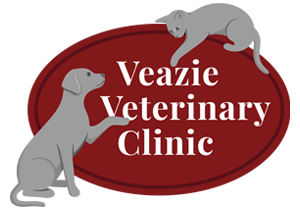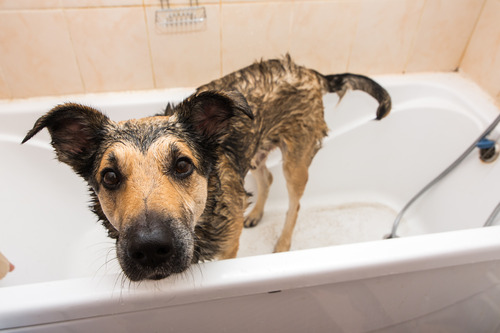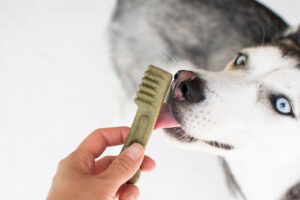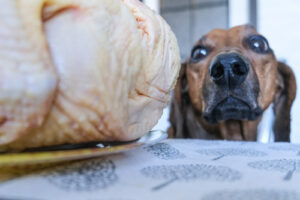When your dog gets sprayed by a skunk, the pungent odor can be overwhelming for both you and your pet. Skunk spray is not only unpleasant but can also be difficult to remove. At Veazie Veterinary Clinic in Bangor, ME, we understand how stressful this situation can be and want to provide you with the proper steps to manage it effectively. For any additional help or concerns, call us at (207) 941-8840.
Skunk Spray and Its Effects on Dogs
Skunk spray, a sulfur-based compound called thiol, is notorious for its strong, lingering smell. When your dog is sprayed by a skunk, the spray can cause more than just a bad odor. It can lead to irritation in the eyes, nose, and skin.
The Chemistry Behind Skunk Spray
Skunk spray contains sulfur compounds known as thiols, which are responsible for the foul smell. Thiols are highly potent and can linger for weeks if not properly treated. The spray also contains thioacetates, which can decompose into thiols, making the smell worse over time.
Immediate Physical Reactions to Being Sprayed
When a dog is sprayed by a skunk, they may experience immediate reactions such as:
- Red, irritated eyes
- Drooling or foaming at the mouth
- Sneezing and nasal irritation
- Vomiting or nausea
These symptoms are generally not life-threatening, but can be quite distressing for your dog and warrant a call to Veazie Veterinary Clinic.
What to Do After Your Dog Is Sprayed By A Skunk
Taking the right steps can minimize the smell and irritation.
- Keep Your Dog Outside: If your dog is sprayed by a skunk, keep them outside to prevent the smell from spreading indoors. Skunk spray can easily permeate fabrics, furniture, and carpets, making it difficult to remove.
- Check Your Dog’s Eyes and Face: Examine your dog’s eyes and face for signs of irritation. If their eyes are red and watery, rinse them gently with cool water or a saline solution. Avoid touching your dog’s face to prevent spreading the skunk spray to your hands.
- Contain the Smell: While outside, prepare to bathe your dog using a skunk odor removal solution. Avoid using tomato juice, as it only masks the smell rather than eliminating it.
How to De-Skunk Your Dog
Wear rubber gloves and wet your dog thoroughly. Apply shampoo that is designed to remove skunk odor, avoiding the eyes and mouth. Work the shampoo into your dog’s fur, paying extra attention to the areas directly sprayed. Let the shampoo sit for about 5-10 minutes before rinsing thoroughly. Repeat if necessary until the smell is significantly reduced.
Post-Bath Care
After de-skunking, bathe your dog with their regular shampoo to remove any residual odor and solution. Dry them off completely to prevent any remaining solution from causing skin irritation.
Preventing Future Skunk Encounters
Preventing future skunk encounters can save you and your dog from repeating this unpleasant experience.
Skunk-Proofing Your Yard
Skunks are often attracted to yards with accessible food sources and shelter. To skunk-proof your yard secure trash cans with tight-fitting lids, remove pet food and water bowls from outside areas, close off potential denning sites, such as under porches or sheds
Training Your Dog
Teach your dog commands like “leave it” or “come” to keep them from approaching skunks.
Educating Your Family
Educate your family members about skunks and how to avoid them. Make sure everyone knows the steps to take if your dog is sprayed by a skunk.
Consulting Your Veterinarian
Consult your veterinarian for additional tips on preventing skunk encounters and keeping your dog safe.
When Is Veterinary Help Necessary?
While most skunk sprays are not dangerous, there are situations where veterinary care is necessary. If your dog shows any of the following symptoms after being sprayed by a skunk, contact your veterinarian immediately:
- Severe vomiting or diarrhea
- Difficulty breathing
- Excessive drooling or foaming at the mouth
- Persistent eye irritation or redness
Contact Veazie Veterinary Clinic
At Veazie Veterinary Clinic, we are here to help if your dog has been sprayed by a skunk. If you notice any concerning symptoms or need further assistance, call us at (207) 941-8840.
What Are The Risks of Skunk Spray?
Skunk spray, while generally not life-threatening, can pose some health risks to your dog.
Potential Health Risks
Skunk spray can contain harmful bacteria that may cause infections if not properly cleaned. Additionally, skunk spray can cause temporary blindness or corneal ulcers if it gets into your dog’s eyes. In rare cases, dogs may have an allergic reaction to skunk spray, leading to more severe symptoms.
Monitoring Your Dog’s Health
After de-skunking your dog, monitor their health closely for a few days. If they exhibit any unusual behavior or persistent symptoms, consult your veterinarian.
Helping Your Dog Feel Comfortable Post-Skunk Spray
After your dog has been sprayed by a skunk, they may feel stressed and uncomfortable.
- Creating a Comfortable Environment: Make sure your dog has a comfortable, quiet space to rest after being de-skunked. Provide plenty of fresh water and their favorite toys to help them relax.
- Maintaining a Clean Environment: Keep your home clean by washing any fabrics or surfaces that may have come into contact with the skunk spray. Use pet-safe cleaning products to eliminate any lingering odors.
If your dog is sprayed by a skunk, it can be a stinky situation…literally. Make sure to use shampoo designed to remove the skunk smell and keep your dog outside to prevent the smell from spreading to the inside of your house. If you have any questions about what to do if your dog is sprayed by a skunk, call Veazie Veterinary Clinic at (207) 941-8840. We can help you get your pet back to normal!
